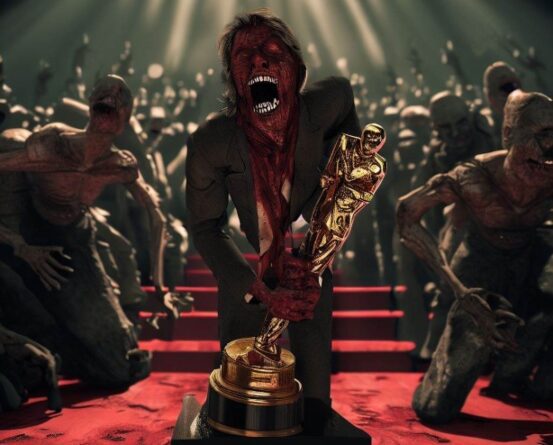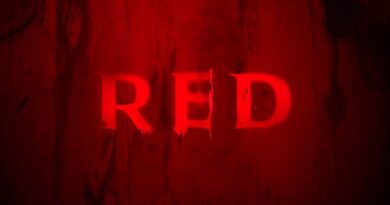Terror Academy: Why Aren’t Horror Movies Nominated For Oscars?
Say what you will about the Oscars, with all the scandals it provides over the years, its tedious length, or the fact that some of the choices are controversial (some would say too predictable, but not in a positive way). There is no doubt that for film lovers and players in the movie industry, the announcement of Oscar candidates is among the highlights of the film calendar. Horror fans and those who work within the horror genre are, sadly, not really invited to the party. It seems that the horror genre doesn’t get the respect it deserves in the awards sector, and that’s an understatement. The announcement of the Oscar 2023 nominees a few days ago left horror fans disappointed. Once again, some very worthy films and roles did not receive proper nominations. We are missing horror in the acting category (did someone say Mia Goth?), the screenplay, the technical categories, or even the best film. Why don’t horror movies win Oscars?
The fact that the Academy ignores horror movies is, of course, not a new problem. When we look at the 95 years of the Oscars, we find that the horror genre was left behind over and over. It’s not that there aren’t worthy films, actors and actresses who give unforgettable performances or sophisticated scripts in this genre. The simple fact is that winning, and in some cases even being nominated, is an unusual event when it comes to ghost movies, slashers, zombie movies, and other horror movies. So why aren’t horror movies nominated for Oscars, which horror has nevertheless received recognition, and is anything likely to change in the coming years?
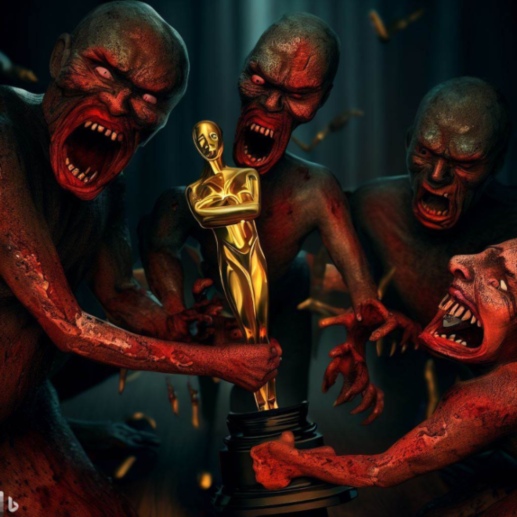
The Exception: What Horror Movies Have Been Nominated For Oscars?
We will start the review with the category considered to be the most important one, which is the Best Picture. Trivia fans can memorize the answer to the question of how many horror movies have won Oscars because the answer is short. One.
Indeed, only one film that can be defined as horror has won the biggest prize: 1991’s “The Silence of the Lambs.” It is the last film to date to win the five most important awards: Best Picture, Best Director (Jonathan Demmy), Best Actor in a Leading Role (Anthony Hopkins), Best Actress in a Leading Role (Jodie Foster), and Best Adapted Screenplay (Ted Daly, based on the book by Thomas Harris).
Quite sadly, there are only five more horror movies Oscar nominations in the Best Picture category. The first was William Friedkin’s “The Exorcist” from 1973, which lost the grand prize to “The Sting”. The film, which many consider the scariest ever, was nominated in nine other categories. It won two prizes: in the adapted screenplay and sound mix categories.
Two years later, came Steven Spielberg introduce “Jaws” to the world, another horror classic that became a huge success. “Jaws” won three Oscars in technical categories (Best Sound, Best Original Music, and Best Film Editing). it lost the Best Picture award to “One Flew Over The Cuckoo’s Nest” – in the opinion of the writer of these lines rightly – when Steven Spielberg himself was not even nominated in the director category.
After the momentary success of “The Silence of the Lambs”, eight more years passed until we saw another horror film competing for the big prize: “The Sixth Sense” by M. Nate Shyamalan. The film, in which Bruce Willis plays a ghost that only the boy who sees ghosts can see (what spoilers are you talking about? Is there anyone who hasn’t seen it?), was nominated for Academy Awards – including Best Picture and best director – but came up empty-handed.
Moving on to 2011 and Darren Aronofsky’s excellent “Black Swan”. The truth is that we are a little hesitant to define this masterpiece as a horror film, as it appears in many reviews, although it is undoubtedly a particularly creepy psychological drama. If we still give it the chance and put it on our prestigious list, we will discover a film that was nominated in five categories, including Best Picture (it lost to “The King’s Speech”). Natalie Portman, however, won Best Actress in a Leading Role.
The sixth and final nomination to date for the Best Picture award is Jordan Peele’s 2017 “Get Out”. It was nominated for four important awards: Best Film, Best Director and Best Actor (Daniel Kaluuya), and Best Adapted Screenplay, which he won. The cynics will argue that this win is because the film deals with the issue of racism against blacks, which has been hot in the United States in recent years. So you may say it was able to receive the recognition “despite” being a horror thriller and not because of it.
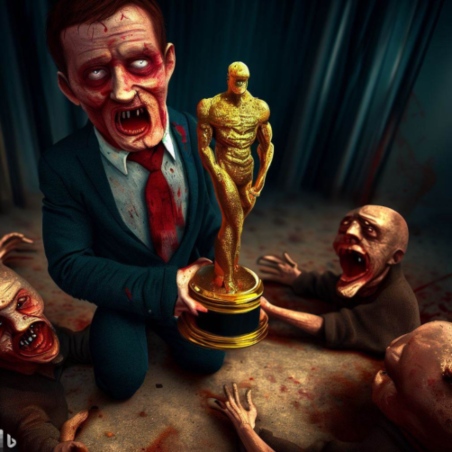
From Mia (Farrow) to Mia (Goth): Horror’s Biggest Oscar Snubs
The problem is that this is where the list ends, with too many Oscar snubs: Films that deserved at least to be nominated for the grand prize throughout history. Which films? Good question! In the classics section, one can point to masterpieces such as “Psycho”, “The Shining”, “The Texas Chain saw Massacre”, “The Thing” and more. Even excellent horror films from the last few years, which according to many, deserved to reach the final list – such as “The Babadok”, “Hereditary”, “The Witch” and “Us”, did not get the chance.
It’s no secret that Hollywood loves a certain types of performances. The “formula”, if there is one, is that of an actor performing a particularly dramatic role. If the actor plays a historical character or makes an impressive physical transformation, the better. The genre clearly plays a role because statistics show that the chances of being nominated for a role in a drama film increase significantly compared to other genres such as fantasy, science fiction, action, and, of course, horror.
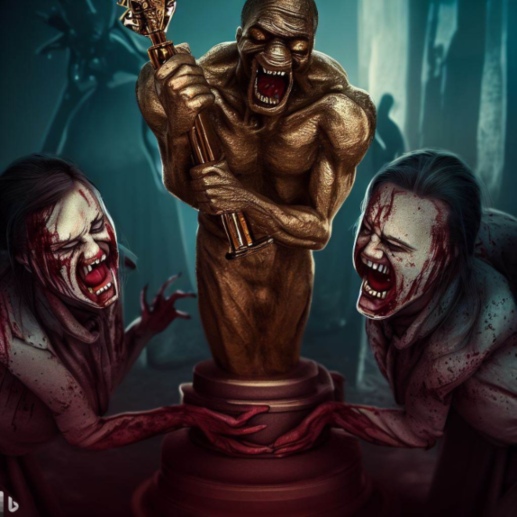
Here again, it’s easy to think of phenomenal acting performances in horror cinema that didn’t get the nominations they undoubtedly deserved. Here, too, the roots of these biggest oscar snubs begin a few decades back, when the Academy ignored Anthony Perkins’ masterful performance in Alfred Hitchcock’s “Psycho” (which can also teach us something about the Academy’s lack of appreciation), Mia Farrow in “Rosemary’s Baby” ( Although Ruth Gordon did win an Oscar in the supporting actress category for the same film) or even the legendary Boris Karloff, who got into the shoes of Frankenstein’s monster.
Jack Nicholson, who was nominated for 12 Oscars during his career and won three (for “One Flow Over The Cuckoo’s Nest”, “Terms of Endearment” and “As Good As It Gets”), did not receive a nomination for his creepy role in Kubrick’s “The Shining”. It is possible that he would have returned empty-handed that year – after all, the worthy winner was Robert De Niro for “The Raging Bull” – but ignoring Nickolson’s brilliant performance seems very weird, even in a film that at the beginning received mixed reviews (including from Stephen King himself) and only over the years became a cult.
In recent years, one can easily think of names like Anya Taylor Joy (“The Witch”), Essie Davis (“The Babadook”), Toni Collette (“Hereditary”), Florence Pugh (“Midsommar”), Elisabeth Moss (“The Invisible Man”) or Lupita Nyongo (“Us”), whose acting performance in Jordan Peele’s film, according to this columnist, was even more impressive than her small, Oscar-winning role in “12 Years a Slave.”
The latest victim of the academy’s terror against horror cinema is Mia Goth. The mesmerizing British actress and model was very impressive in “X” and gave a one-off appearance in “Pearl”, but did not receive the much-deserved nomination. She recently referred to the American Academy’s disregard for horror films and the performances of actors and actresses in them. “I think that it’s very political,” she said in an interview on Jake’s Takes.“It’s not entirely based on the quality of a project per se. There’s a lot going on there and a lot of cooks in the kitchen when it comes to nominations. Maybe I shouldn’t say that, but I think that’s true. I think a lot of people know that”. She added that “A change is necessary. A shift should take place if they wanted to engage with the wider public. I think it would be of benefit, really”.
If we hoped the situation would be better in the technical categories, the list of nominations for Oscar 2023 is disappointing as well. “Nope” by Jordan Peele, which got box office success and positive reviews (83% according to Rotten Tomatoes), did not receive a single nomination. We can argue that “Pearl”, for example, can feel deprived for not receiving a nomination, as mentioned, in the acting category.
Even the extraordinary make-up in the film “X”, in which Mia Goth played the double role of a sexy porn actress and a crazy old woman, is conspicuous by the absence. Or the excellent sound editing in the movie “Barbarian”, which contributes to the creation of the atmosphere in it. The far-fetched would argue that there might have been a place to include Damian Leone’s “Terrifier 2” in one of the technical categories because it managed to do wonder with a ridiculous budget. But maybe that’s too much to ask, since we are dealing with a movie about a clown that haunts and kills people, in agony, in a variety of creative ways.
So… Why Aren’t Horror Movies Nominated For Oscars?
Until a few years ago, there was an almost unequivocal formula for an “Oscar movie”: In short, long, and realistic Drama, with an agenda and emotion, and usually based on a book or a true story. Horror movies obviously don’t fit most of these categories. The “discrimination” began back in the 1950s and 1960s, when, according to popular perception, horror films simply presented too subversive a narrative and appealed to narrow, even niche, audiences. In the following decades, the picture has changed. Some horror films have entered the mainstream, but it’s probably not enough.
The fact that these horror films are considered sometimes “easy to produce”, with a quality that is considered “poor”, does not help of course. Obviously, at the starting point, a well-made routine drama – or even a reasonably well-made one – has a higher chance of competing for important awards compared to a successful, bold, and excellent horror film. According to another analysis, Oscar nominations are usually characterized by looking back, even nostalgically. Horror films that deal with looking ahead, dealing with fears, or stretching boundaries, are left behind.
On the other hand, we must be critical as well. An old saying that I just made up right now is that those who are in a horror slasher set, should not throw knives. Many horror films are of problematic quality, to say the least. The genre itself seems sometimes stuck, based on too many sequels, remakes, or spin-offs, mainly because that’s what works financially. The horror viewer has also become skilled, and it is harder to scare us today. With all our likeness for horror films, we are not here to argue (only) about “robbery”, or that every year at least a few horror films should be nominated in the important categories.
Will Horror Films Win It Again?
It is important to note that not only horror films are the victims of award distribution. It is impossible to reduce a list of hundreds and thousands of films produced each year to a few individual works and create a list where everyone will agree on the choices. We all remember the case of Christopher Nolan’s masterful “The Dark Knight”, which received eight nominations but for some reason was left out of the list of nominees for Best Picture. A year later, the category was expanded to up to ten films, some would say due to this omission. Recently Steven Spielberg, by the way, claimed that “The Dark Knight” should have been crowned as the best film of that year. We agree with him.
In general, recently we have noticed some change. The expansion of the number of nominees for the best film, the change of the voting method, and the refreshing of the Academy members resulted in the fact that the number of nominated films, and also a significant part of the winners, departs from the accepted and incredibly boring formulas. That’s why we saw slightly more subversive films that won the big prize: “Moonlight”, for example, which deals with a homosexual relationship between black men. Or the romantic fantasy film “The Shape of Water” by Guillermo del Toro (who is largely a horror master), focuses on a relationship between a mute woman and a monster imprisoned in a government facility. The road to horror films is still long, it turns out, but maybe we’re heading in the right direction.
You can draw encouragement from the fact that the last year was successful by any measure for horror films at the box office, or even if you look at what’s happening across the road, in the television sector when horror series and acting roles do get recognition.
In conclusion, some would say that this discussion is not that important. The Oscars don’t really mean anything, do they?

